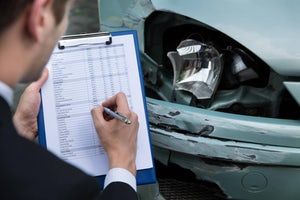Now that nearly every person of driving age has a cell phone, most of us has experienced the danger of distracted driving. Whether we have been tempted to send a quick text while cruising down the road or we have seen someone swerving as they reached for something in their car on the interstate, distracted driving is dangerous driving.
Distracted drivers fail to focus their full attention on the road and are the leading cause of most crashes, according to the National Highway Safety Administration. Teen drivers are especially at risk. New drivers have the highest crash fatality rates of all drivers, so it’s critical that they develop good driving skills and know the importance of distraction-free driving.
Here are the top five ways to practice safer, distraction-free driving that not only keeps you and your passengers safe, but other innocent people driving near you.
- Don’t use your phone while driving, and especially don’t send a text message. Unless it’s an emergency, you should keep your phone out of your view and ignore it until you are safely parked and off the road. No 10 second text message is ever worth a life, injury or damage to your vehicle. Avoid hands-free devices as they could also cause you to miss important road signs and still be a source of distraction. A growing number of towns are making it illegal to operate a personal phone while driving, so keep that and its implications in mind, too.
- Don’t drink (or eat) while driving. While drinking and driving is obviously illegal and dangerous, a lot of people don’t consider the danger of eating behind the wheel. Sometimes we are too busy to go home and whip up a meal, but that doesn’t mean you can’t take 5-10 minutes to eat your meal in a parking lot before heading off to your destination. Eating with one hand on the wheel while juggling food and risking spills is a major distraction on the road.
- Don’t drive while drowsy. A tired driver is four times more likely to have a car accident than a well-rested person. If you feel as though you may nod off or fall asleep behind the wheel, it’s imperative that you pull over to a safe spot as soon as possible. Don’t rush home or risk napping on the side of a busy road. It’s best to park safely and call a friend to get you than risk an accident.
- Keep your focus on the road. Many drivers choose to operate their mobile devices, such as cell phones or GPS units, while on the road. Spend a few minutes to take care of emails, text messages, music stations, etc., before you put your vehicle into drive.
- Don’t overload your car with passengers. While carpooling to your job or school makes sense and road trips are fun, keep your passengers to a minimum. The more people you have in your vehicle, the more risk of distractions you’ll encounter. In the event of an accident, those who don’t have a seatbelt available due to an overpacked car will be at greater risk of injury and this could come back to haunt you as far as liability is concerned.
So, slow down. Take care of tasks before and after you drive. Remember that most tasks take a few minutes. And be sure you have adequate auto insurance in the event of an accident. For questions or concerns regarding your auto insurance, please contact Lang Insurance at (636) 229-7000.










